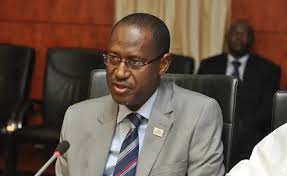FG projects real estate sector to hit N2trn in 2025
Nigeria’s real estate sector is one of the critical sectors of the economy which contributes a reasonable quota to the country’s Gross Domestic Product (GDP). However, major issues bedevilling the sector include high exchange rates, housing affordability challenges as well as inflation which is gradually eating up the gains in the sector. The National Bureau […]

dangiwa
Nigeria’s real estate sector is one of the critical sectors of the economy which contributes a reasonable quota to the country’s Gross Domestic Product (GDP).
However, major issues bedevilling the sector include high exchange rates, housing affordability challenges as well as inflation which is gradually eating up the gains in the sector.
The National Bureau of Statistics recently reported that Nigeria’s inflation rate had reached over 34 per cent. The current rate has put developers on the edge, making affordability a major challenge.
Aside from inflationary figures, the high cost of building materials has also become a major challenge. This is occasioned by the volatility of the exchange rates market as well as the fact that over 90 per cent of building materials in the country are imported.
- Ramadan: Sokoto to create feeding centres for destitute
- Rivers community barricades airport road over killing of kinsman
Experts have, therefore, called on government to tighten all loose ends to ensure that Nigeria does not lose out on the potential of the real estate sector in 2025.
They affirm that if the sector is properly harnessed, it will not only contribute to the nation’s GDP but ensure that Nigerian masses have access to decent homes at an affordable rate.
Real estate to hit N2trn in 2025 – Dangiwa
Speaking at the Saudi Arabia Real Estate Forum which was held in Riyadh, the Saudi capital, as a panelist, Dangiwa highlighted the significant growth prospects in Nigeria’s real estate market, citing the country’s ongoing housing deficit.
“Nigeria’s real estate sector contributed around 5.2 per cent to the nation’s GDP in 2024, and will increase in market volume to N2.25 trillion by the end of 2025,” Dangiwa said.
The forum, themed ‘Balance and Innovation in the Real Estate Landscape’, saw notable figures, such as the Minister of Municipality of Qatar, Abdullah Al-Attiya and Minister of Construction, Housing and Infrastructure of the Maldives, Abdulla Muththalib, contribute their insights.
Dangiwa stressed that Nigeria faces a housing deficit of 28 million units, exacerbated by rapid urbanisation.
“Despite this, there is still tremendous investment opportunity, especially in the residential real estate segment. Nigerians need homes now more than ever and you can partner with the Nigerian government to deliver these houses at scale,” he stated.
On affordability, he noted that “The government is tackling this by prioritising large-scale housing delivery through public-private partnerships, innovative financing and government-led interventions,” he explained.
He also noted the government’s efforts to engage state governments in unlocking land for affordable housing projects, as land acquisition remains a challenge.
“However, achieving a balance in the real estate sector between affordability and profitability means that the challenges of sustainability and cost efficiency, as well as policy and private sector incentives, must be addressed,” he added.
Addressing concerns regarding the balance between affordable housing and profitability, Dangiwa outlined government incentives such as bankable offtake guarantees, facilitated land access, and low-interest financing.
To further boost housing accessibility, he revealed the government’s efforts to make homeownership more affordable for Nigerians.
High-interest mortgage rates, which can reach up to 30 per cent per annum, have historically made homeownership difficult for many Nigerians. The government is expanding the Federal Mortgage Bank of Nigeria’s reach and recapitalising it with N500 billion to provide more accessible single-digit mortgage products,” he said.
Additionally, he said government is exploring new funding models, such as leveraging the Nigerian Capital Market to mobilise private sector funds for housing development.
“The Real Estate Investment Fund, targeting 12 per cent mortgage interest rates instead of the market’s 28-30 per cent, aims to provide bankable off-taker guarantees for developers,” Dangiwa explained.
Rent-to-own schemes are also being introduced to provide flexible payment structures.
He mentioned ongoing collaborations with the Nigeria Governors’ Forum to improve land access and streamline approval processes, which will create a more conducive environment for development.
